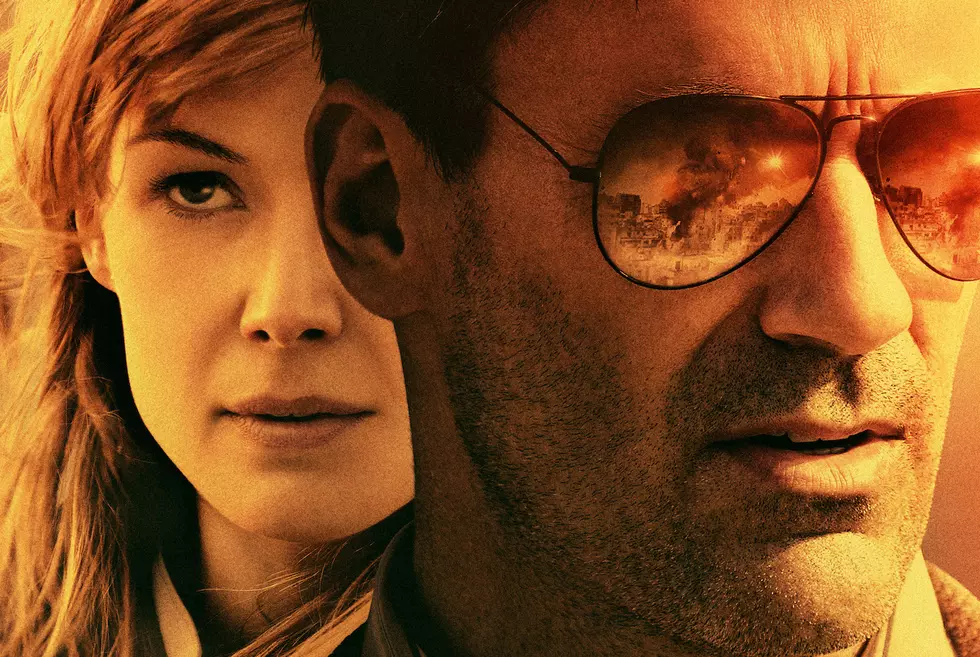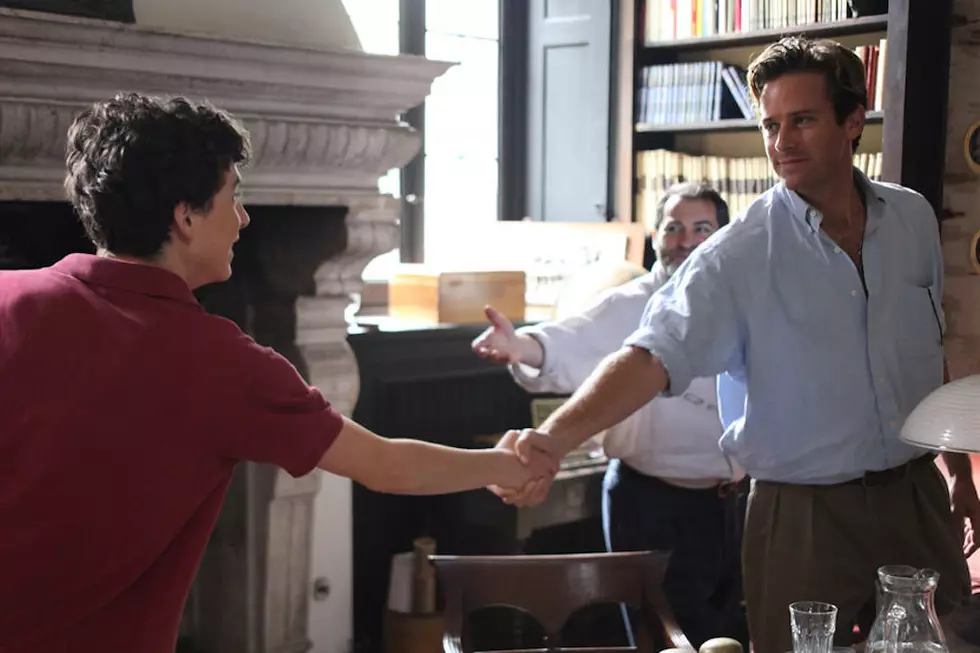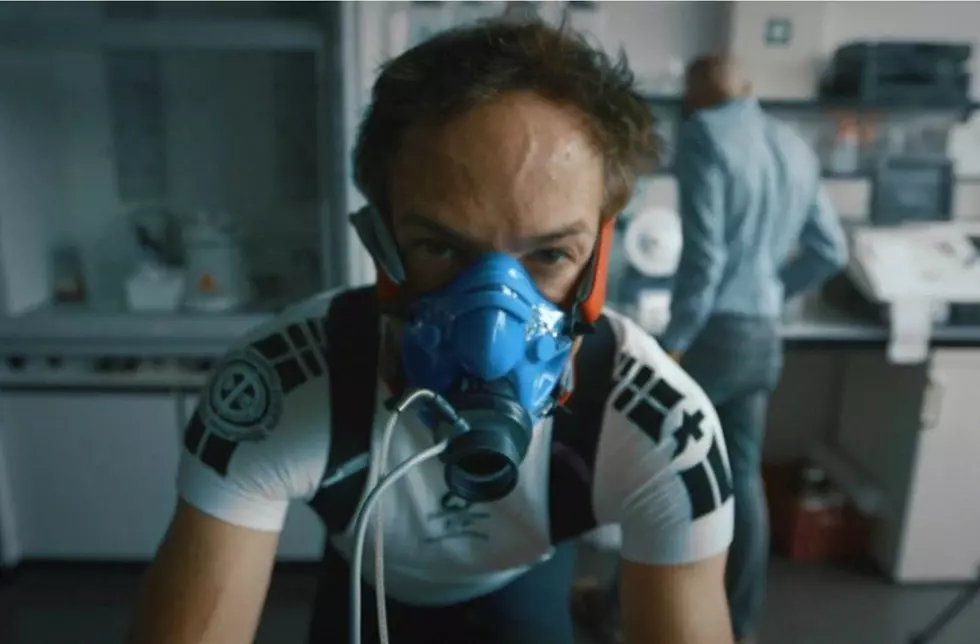
John Carney on His Autobiographical Musical ‘Sing Street’ and the Influence of the ‘80s
As any fan of Once can attest, writer, director John Carney is a master at capturing the complexities of love through music. In his latest musical, Sing Street, Carney pulls from his own past as a misfit school boy in the 1980s who found solace in music.
The film follows Conor (Ferdia Walsh-Peelo), a 14-year-old who turns the arguments of his fighting parents into song lyrics, discovers new bands from his brother Brendan’s (Jack Reynor) vinyl collection, and struggles with transferring to a new school. When a hip older girl, Raphina (Lucy Boynton), catches his eye, he asks her to star in his band’s music video. The only problem: Conor isn’t in a band. Scrapping together a group of outcasts from school, Conor forms Sing Street to win the girl’s heart and establish his own identity.
Sing Street is every bit as heart-warming and adorable as it is rapturously fun, an Irish rock-n-roll romance with a killer ‘80s soundtrack and an addictive collection of original songs. I caught up with Carney at the Sundance Film Festival to hear about his own coming-of-age in the ‘80s, how music has changed today and working with the talented young cast of Sing Street.
You were last at Sundance in 2007 for Once. What’s it feel like to be back?
It’s a little bit bigger than it was when I was there. But that could just be that I remember fondly, nostalgically through rose-tinted spectacles. It’s lovely to be back, and a bit unnerving following Once coming back to the same festival.
Why so?
Just because that was a magical, magical time. I can’t tell you how great it was and you don’t want to drop the ball or disappoint anybody. So it seems to have gone well and people who liked the movie back then aren’t annoyed with me coming back. I haven’t been rapped on the knuckles.
I love that Sing Street is a generational shift from Once and Begin Again as a love story told through music. What was it like to make that transition to writing about young romance?
It’s quite an autobiographical story. I did form a school band and it ticked a lot of boxes for me. It got the bullies off my back because my eccentricity was something I could turn around a bit. It got the teachers distracted from the fact that I was doing no work, at least I was doing something. It got my parents saying, “Well, he’s not a completely untalented guy.” And I got the girl that I fancied.
So it worked?
It kind of worked. That’s what putting a band together really is. It’s misfits, it’s people who don’t quite fit in, who don’t make the rugby team or the football team. That’s a bit of a generalization, but you know what I mean. There’s elements of that in the film. I went back into a diary [I kept] when I was in the band. I reread that and I was amazed by my self-belief when I was 12 because there was so much shit going on in my life. I was kind of miserable, but I had this inner core of, this band is going to be huge. I would write these diaries like, “Today wasn’t good enough. We’ve got to fire this member.” I was like this little kind of Hitler character in this band. I explored that and met old school friends and talked to them, slowly trying to remember how I spoke when I was a kid and how people talked in the ‘80s. “Word up” and “epic” and all these ridiculous terms that Dubliners adopted from American dialogue. It was a lot of fun writing it, actually.
Did you get back in touch with your former bandmates?
I did. One of them, the Eamon character, he played all the of bass guitar in the film as the character Eamon is based on.
Did Mark McKenna, who plays Eamon, get to meet him?
Yeah he did. Eamon used to come down to set.
What was it about the ‘80s that helped you embrace yourself as a kid as it does for Conor in the film?
The theory is that Ireland didn’t have the ‘60s in the way America had the ‘60s. That the sexual revolution, the Beatles and the hippie, free love in America didn’t happen in Ireland. The ‘60s were still very much a church-run state to a degree. So the theory at least is that the ‘80s were our ‘60s and that was the decade where people got to talk about their sexuality more openly, got to experiment with who they were, dress a little more outrageously. They were still beaten up for it, but you stood up for who you were. There was a very interesting conflict going on, that happened in America as well. And then you get the Mad Men thing, where ad execs started to try and buy the hippie image and own that and stop people from expressing themselves. That happened a lot in Ireland as well where the kids were fighting back for the first time. It was a very interesting decade in Irish history and culture and music.
Would you say the music of the ‘80s is your favorite or the most inspirational?
No, it’s just the stuff that I have – every kiss has got a song, every decision and every [moment] running down the street was on a Walkman. My cycles into school were scored by so many different artist. Every decision was made with a piece of music playing and me pumping the air and being in a John Hughes movie. For real. And every girl that I ever met, I remember having a girlfriend for a weekend or something and she broke up with me and just being devastated and my best buddies listening to terrible – like Jefferson Airplane, awful Americana pop. But pretending, feeling I was in a movie. Obviously in terms of my buttons the 80's really pushes them, but I don’t think it was a great decade for music. It was a great decade for pop music.
Did you get taken back to those moments when writing this film and listening to the songs on the soundtrack?
Yeah, a little bit. I listen to music a lot less than I used to when I was younger for various reasons. Hitting 40, music is less, for me anyway. I used be out all night and still put on a record when I got home and listen to both sides. [If] anybody made a recommendation you would go out and buy that record. Now I don’t. There’s too much music in the world now. Everywhere you go – there’s music playing right now, there’s music in every cafe, so music is less precious now. Like in Ireland in the ‘80s, you’d never hear music publicly. There’s no music in store. Maybe there was a violin or light jazz in the background, like elevator music, but now everywhere you go there’s music being forced down your throat. Like that Adele song. I don’t know how many times I’ve heard that song and I’ve never chosen to listen to it in my life, but I know it like I know a Carole King song.
Do you think that changes how people relate to music now, especially with how important music is in Sing Street compared to our relation to music today?
Maybe that’s why the film is set in the ‘80s as well, when music was more precious, and being in a band, you were more weird. Being a band now is like, yeah, everybody’s in a band. There were a few bands at my school and being in a band was kind of like putting down a flag and stating who you were then. But now everybody plays musical instruments. The instruments are cheaper and music is cheaper. It’s being cheapened by the industry as well, the outrageous way the music industry pays artists now, it’s insane. It’ll be an interesting few years in terms how that that resolves itself or if it resolves itself.
Do you think that will affect the way you write musical films from now on?
I can’t see myself writing a musical film for a while. I think I’m done with that for a little while anyway. Those three movies are kind of a nice triptych.
What was it like to work and record in the studio with the young actors in this film?
It was fine. I’m kind of bluffing my way through my career anyway. I’m kind of making it up as I go along, so it’s not like they’re getting some seasoned director who knows what he’s talking about. I’ve no business, I have no training being a filmmaker. I like films and I picked up a camera when I was young, but I don’t know anything more than they know really. It’s more of collaboration. I didn’t want to make them nervous either, like suddenly here’s a filmmaker so you have to behave. It seems through doing press with them that that’s what they felt, that I was an older brother character. And Jack Reynor was great, he was around set all the time. He’s not a precious act-or in any sense, he’s just a great actor and a great guy. He’s just goofing around and playing music on set. So I didn’t find it challenging working with kids at all, in the dreadful way that people say “kids and animals.” I didn’t have that problem. Even the rabbits were good.
The rabbits! I loved them. Where did that idea come from?
That came from autobiography as well. Eamon had a rabbit and he was quite interested in rabbits and I never got to the bottom of it. And I hate rabbits. [Laughs.]
So Synge Street from the film is the real school you went to. Did you have a headmaster that was as awful as Brother Baxter in the film?
There was a guy, Brother Byrne. I’m not even remotely scared of saying who he was because he was a vicious thug and I couldn’t care if he sues me. It was based on him. He was a guy I’d just see pummeling kids, just punching them in the face. It was brutal. I remember hearing a story years later when we were adults in our 20s about a school boy seeing Brother Byrne out of uniform [waiting in line] for a movie, and [he] went up to him and just punched him in the face. Years of being beaten up by this guy. And Don Wycherley plays that role [in the film], who’s a great Irish actor.
At the premiere screening you said you’d reached out to ‘80s musicians when making it. What was that songwriting process like?
Yeah, I reached out to a lot of ‘80s musicians and they came back with a lot of bad ‘80s songs. I was like, “No, they have to be good ‘80s songs.” And Gary Clark ended up writing such great songs for this film. It was good fun writing the music for it because we had to try and chart this band. We wanted them to be bad to begin with and we wanted them to progress and go up through the years of being a better band. That was good fun doing that and not jumping ahead so that they’re too good too quickly.
Were there other bands you grew up with that influenced the film?
So many. So many subtle things that I saw in the screening [and thought], That sounds like this, or like Japan and David Sylvian, Gang of Four and great English bands. I liked particularly English music, like Old Grey Whistle Test was my favorite show ever. It showcased mainly English acts live, beautiful BBC sound. It was kind of a forerunner to Later… with Jools Holland.
Like Conor does in the film, you also made some music videos for bands.
I did various music videos for some people, but they like to call them music videos as to dignify them. They were awful. I hope they’ve been worn by VHS heads and demagnetized so they can’t be shown ever.
The costumes in the film are also fantastic as the boys change their style from Duran Duran to Depeche Mode to The Cure.
That’s a friend of mine, Tiziana Corvisieri, the costume designer. She did a great job in not making it too unbelievable, so it seems like they’re low-budget ‘80s kids, which is how it was in Ireland. You had to sort of beg, borrow and steal to look different. Nowadays you can just go into All Saints and have instant edge, or go to Zara and look punk. Back then to be a punk you had to go and buy safety pins and put them through your clothes and you had to rip your jeans yourself. More like, this is a statement, I’m putting time into making these clothes. I’m not just buying it.
Did you dress like that in high school with those fashion phases?
Yeah, I was a very low-budget guy. I cut my own hair, borrowed my sister’s clothes, my brother’s clothes, my grandmother’s hats, my dad’s sports coats. You were experimenting with Tom Waits and with The Cure. Just constantly trying to find yourself.
In the credits you dedicate this film to all brothers. Is your relationship with very yours important to you?
Yeah, big brothers are important to me. Being given permission to do things is important to me when you’re a kid, and giving kids permission is a blessing really. Parents tended to, in that era, they tended to have ideas of who their kids should be. I think that’s a mistake. But I think brothers and sisters don’t care for who their younger siblings are, and they give them permission to do things their parents are more reluctant to do. They’re more like uncles, they say “yes” a lot.
The film’s soundtrack is so great. Do you know when it will be released?
We’re trying to do a soundtrack deal at the moment, so we wanted to wait till the screening to see what people thought of the film. We’ll have loads of different versions, acoustic versions of the songs.
Would you be interested in ever taking this to Broadway?
I don’t think that will ever happen. I mean, it might. I didn’t expect it to happen to Once. If somebody comes along for a great vision of how it will work on a stage, I’m not going to stop them.
What do you think your next project will be?
I have no idea. I’m having a baby, that’s the next thing I’m doing. So that’s what I’m gonna put my focus into now and not do any films or scripts for a while. It’s kind of been my life for the last 10 years, writing and rewriting. But obviously I’ll come back and do something soon.
This interview has been edited and condensed.
Sing Street does not yet have a U.S. release date.
More From ScreenCrush









